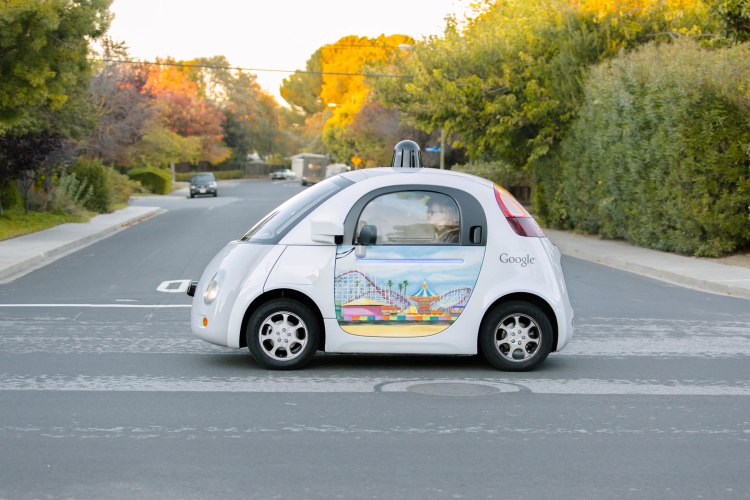2016 could go down in history as the year the autonomous vehicle onslaught went full tilt.
While the history of self-driving cars goes back decades — Carnegie Mellon University Navigation Laboratory was developing autonomous vehicle technology in the 1980s and one of the first real-world tests of driverless car technology resulted in a Mercedes traversing 1,000km in 1994 — we’ve seen a concerted push recently by tech companies and car brands looking to grab their piece of the pie.
This week, China’s tech titan Alibaba and SAIC Motor Corp, the country’s biggest carmaker, announced a connected car that will lead to new autonomous car technology. “You’ll quickly see driverless car technology resulting from this platform,” said Alibaba’s chief technology officer, Wang Jian. On the same day, South Korea’s LG Electronics revealed a tie-up with Volkswagen for a new connected car platform that will enable vehicles to communicate with various devices, including home security systems, home lighting systems, and more. But this could also be viewed as one of the enabling components upon which driverless car technology will be built — self-driving cars need to liaise with the outside world.
And this leads us to another big trend we’ve seen in recent years: traditional car brands relying on the smarts of cutting-edge tech companies, and vice versa.
A brief recap of some of the partnerships and self-driving car initiatives that have sprung up this year involves a Who’s Who of some of the biggest names in the industry. BMW announced a partnership with Intel and Mobileye to produce fully autonomous cars by 2021. General Motors (GM) revealed plans for autonomous vehicles when it invested $500 million in Lyft. Toyota set up a 50-person research lab to investigate ways to create autonomous vehicles and placed a strategic investment in Uber, a company that has started testing out its own autonomous vehicles on roads. And Chinese internet giant Baidu launched a new Silicon Valley arm dedicated to self-driving cars, shortly after partnering with BMW on a number of self-driving car initiatives in China.
The Google factor
Google has been working on self-driving car technology for years and is arguably at the most advanced stage out of all the players. Though Google has built its own self-driving car prototype, the company has largely relied on partnerships with carmakers and has provided technology for the Toyota Prius, Audi TT, and Lexus RX450h. Earlier this year, Google and Fiat Chrysler teamed up to get “dozens” more self-driving cars onto roads. During the partnership announcement, Fiat Chrysler CEO Sergio Marchionne said that Google and other tech companies “are not my enemy; these are people who will help us shape the next phase of the automotive industry.” And last year, Google self-driving car chief Chris Urmson said: “Making cars is really hard, and the car companies are quite good at it. So, in my mind, the solution is to find a partnership.”
But partnerships and alliances are likely only a short-term solution, while technology and automotive companies figure out how to become experts in all the fields necessary to launch a self-driving car safely onto highways. To use another example, Google has traditionally partnered with handset makers to push out its own brand of Android Nexus phones. But reports suggest that it will begin building its own phones soon. That makes sense, and it’s an approach that has served Apple well across mobile phones and computers — having a single company build the software and hardware can create a smooth experience for users.
Google has indicated in the past that it doesn’t intend to sell or market its own cars, and the prototypes it has built — devoid of manual brakes, steering wheels, or accelerators — are part of a learning process. Speaking about these prototypes at the California Public Utilities Commission last year, Sarah Hunter, head of policy for Google X, said:
We’re … making a few hundred of them. We’re making them to enable our team to learn how to actually build a self-driving vehicle from the ground up.
Google has its own car-making arm, Google Auto LLC, and it’s actually this company that’s named as the manufacturer of all of the modified autonomous Lexus cars registered in California. Make no mistake about it, Google ultimately wants to have full control over its self-driving car initiatives, and that will mean building and selling its own cars. Of course, that’s not to say it won’t also work with third-party carmakers to outfit their vehicles with the latest autonomous smarts — consumers appreciate choice, after all.
Marriage of convenience
There’s no question that the myriad partnerships we’ve seen between car companies and tech companies are marriages of convenience, but they’re also giving us a glimpse of what’s to come in the future.
Besides the aforementioned autonomous driving research lab set up by Toyota in the U.S., GM — the century-old car company behind big brands such as Chevrolet, Buick, Cadillac, and Vauxhall — made a $1 billion-plus acquisition of self-driving car startup Cruise Automation. And Toyota poached Google’s head of robotics to lead its own in-house A.I. efforts. Elsewhere, Jaguar Land Rover launched a new standalone venture called InMotion that’s focused specifically on technology and bringing the company into the modern internet age. And let’s not forget about Elon Musk’s Tesla, which has already demonstrated that a carmaker can also be a tech company.
Partnerships are all very well and good in the early days, but what we’ll begin seeing more of is convergence: Tech companies will become car companies, and car companies will have to become tech companies.


